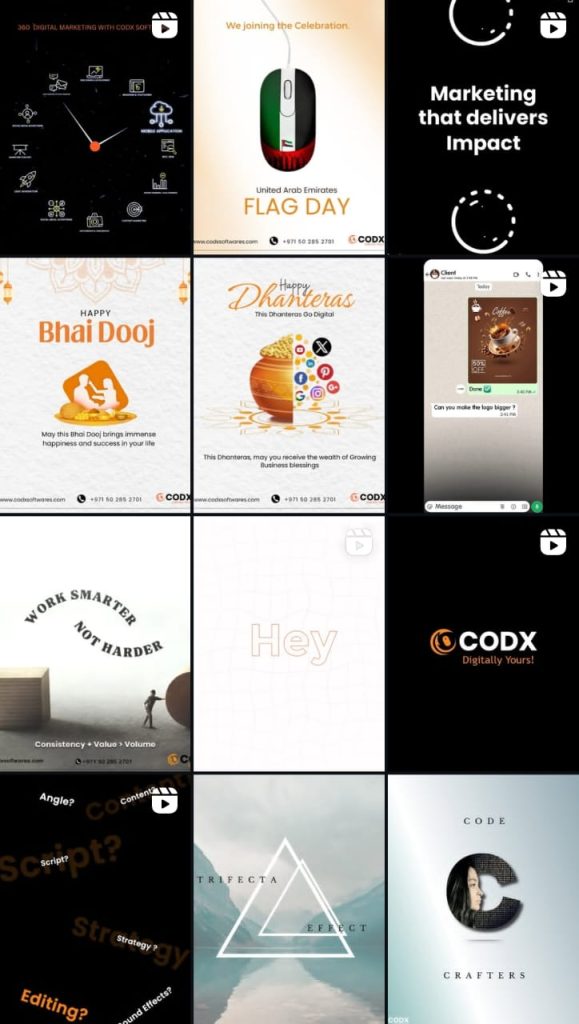In every growing business, there comes a point where spreadsheets, WhatsApp groups, and manual follow-ups just don’t cut it anymore. Orders start slipping through the cracks, staff blame “the system,” and you find yourself spending more time fixing problems than growing the company. That’s usually the moment business owners start thinking about custom software – not as a luxury, but as a necessity.
What Do We Mean by “Custom Software”?
Custom software is a digital system built specifically for your business, your workflow, and your industry.
It could be:
- A CRM that mirrors exactly how your sales team works
- An internal dashboard that pulls live data from different tools
- A booking or inventory system tailored to your processes
- A mobile app for your staff or customers
Unlike generic tools, custom software isn’t asking you to change your business to fit the software. It adjusts itself around you.

1. One Source of Truth Instead of 10 Different Files
Most small and mid-sized businesses operate like this:
- Leads in WhatsApp
- Invoices in Excel
- Inventory in someone’s notebook
- Follow-ups in someone’s memory
The result? Miscommunication, duplicate data, and lost opportunities.
Custom software centralizes everything:
- Customer data, orders, inventory, payments, and communication live in one place.
- Anyone with access can see what’s happening in real time.
- You stop chasing people for updates and start reading dashboards instead.
When your team works from a single system, you reduce errors, speed up decisions, and build a culture of accountability.
2. Automating Repetitive Work
Ask yourself: what are your people doing every day that a system could do faster and more accurately?
Common examples:
- Manually sending payment reminders
- Updating status of orders or bookings
- Creating the same type of quotation again and again
- Preparing daily sales or stock reports
Custom software can automate these tasks:
- Auto-generate invoices and quotes based on pre-set templates
- Trigger WhatsApp/SMS/email reminders for follow-ups, payments, or renewals
- Update stock and availability instantly after every sale or booking
- Generate reports with one click instead of spending hours compiling data
Your team can then focus on what really matters: calling customers, closing deals, building relationships, and improving service.
3. Better Control, Better Visibility
As a business owner, you should not have to wait for weekly reports to know how your company is doing.
Custom software gives you:
- Real-time dashboards for sales, revenue, and outstanding payments
- Vendor or staff performance reports
- Insights about which products/services are most profitable
- Customer behavior patterns – what they browse, what they buy, when they come back
This level of visibility helps you:
- Take decisions based on data, not guesswork
- Reward high performers and fix bottlenecks
- Plan stock, staffing, and budgets more intelligently
4. Scaling Without Losing Your Mind
When you start, managing 10 orders a day is easy. At 100 orders, things start breaking. At 1,000 orders, chaos is guaranteed unless your systems are ready.
Custom software is built with growth in mind:
- You can add more users, branches, or locations as you expand
- Permissions and roles can be set so each person sees only what they need
- Integrations with payment gateways, accounting tools, and marketing platforms can keep everything synchronized
Instead of hiring more people just to “handle operations,” you let the system handle complexity while your people handle customers.
5. Happier Customers, Stronger Brand
Customers don’t care how you’re managing things internally. They care about:
- How fast you respond
- How accurate your information is
- How easy it is to book, buy, pay, or get support
Custom tools can power:
- Self-service portals for customers to check status or download invoices
- Faster response times thanks to proper ticketing or lead management
- Personalized communication (right message, right time) based on data
When customers feel that dealing with your business is smooth and predictable, they trust you more—and refer others.
6. Security and Compliance
Spreadsheets shared on email or open Google Drives are a security risk. So is keeping sensitive customer data across multiple devices.
Custom software lets you:
- Control who sees what
- Log all user activity
- Back up data securely
- Comply better with regulations, data privacy rules, and audits
Your business data is an asset. Treating it professionally is part of building a serious brand.
7. Why Work With a Tech Partner Like CODX?
The real value of custom software comes from understanding your business first, then writing code.
A good partner will:
- Sit with you to map your current workflow
- Identify friction points and inefficiencies
- Design a system that simplifies, not complicates
- Build and test in phases so your team can adapt
- Provide ongoing support, upgrades, and training
At CODX, this is exactly how we approach every project: think business first, tech second.
Final Thought
Custom software is not just about “going digital.” It’s about making your everyday operations lighter, faster, and more controlled.
If you feel your business is stuck in manual mode—too many Excel files, too many follow-ups, too much confusion—that’s a clear signal. It might be time to explore a solution built just for you.






